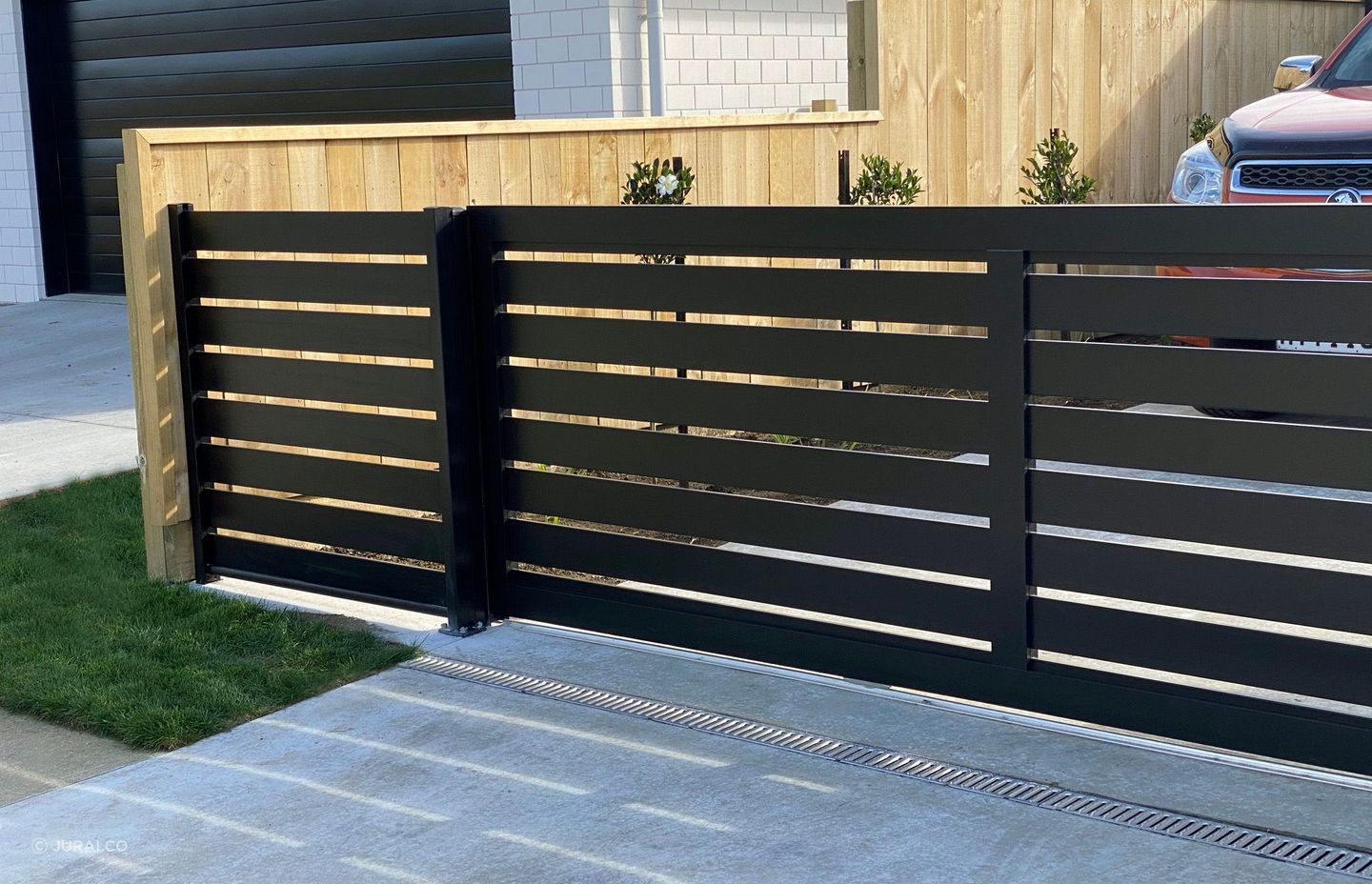A guide to driveway gates: costs, types, benefits and more
Written by
26 November 2020
•
7 min read
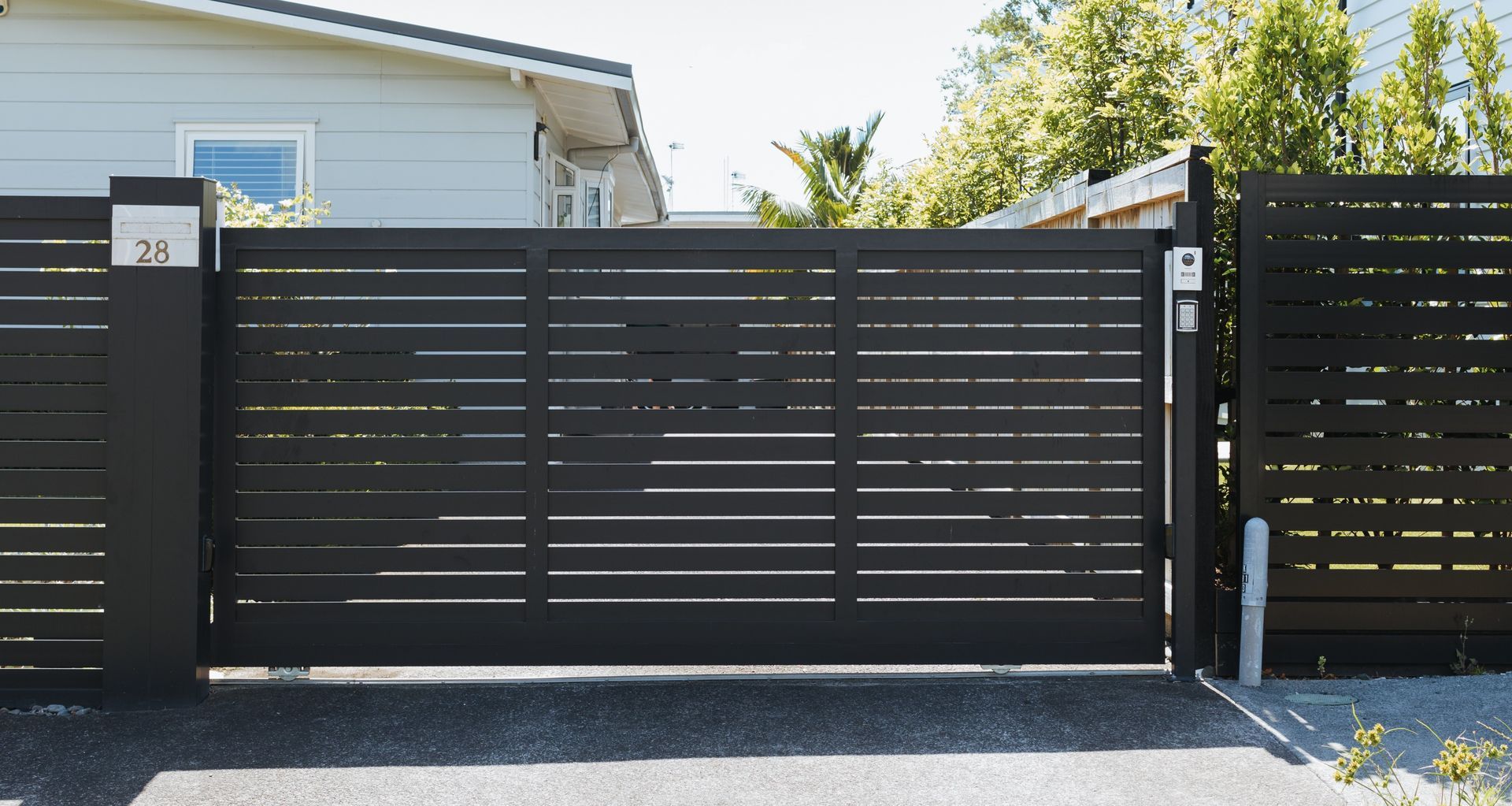
If you're in the market for a new driveway gate, you'll find there's a lot to take in before a decision is made. You'll need to decide exactly what you want out of your driveway gate. You'll need to understand the different types that are available. And you'll need to calculate the costs involved (including installation costs) to plan and budget accordingly.
The benefits of driveway gates
Installing a driveway gate is often a decent investment so you want to be sure you're getting one for the right reasons. By understanding all the advantages and benefits, you'll know exactly what a driveway gate can deliver in the short and long term and decide which qualities and traits are going to be most important to you.
Security for your property and possessions
Security is probably the most obvious and common reason for upgrading or getting a new driveway gate. They deter unwanted intruders from entering your property and reduce the risk of theft and vandalism. If you have expensive vehicles, boats, caravans and/or trailers then driveway gates are even more important.
Safety for children and pets
For a family with small children, driveway gates will prevent the little ones from wandering onto the road while chasing a ball or something similar. In the same way, it can help keep your pets safely confined to your property from cars driving by and other animals on the street.
Privacy for your home
For those concerned with privacy, gates are a great asset to have. It will stop random people from peering into your home when out for casual strolls. This will make you feel more comfortable in your own space, especially when entertaining guests in your patio, deck and outdoor living area.
Controlled access and advanced features
Advancements in technology also give you greater control, especially when it comes to automatic driveway gates. Many now have smart technology incorporated in their designs allowing you to control the gate remotely via your smartphone or tablet. This is fantastic for things like receiving parcel deliveries when you're not at home as you can get an alert to your phone and talk to the delivery driver from the intercom connected to the web.
Improving kerb appeal
While all the previous points mentioned are practical aspects, aesthetics are also important. A new high-quality driveway gate can greatly enhance the exterior of your home adding to its kerb appeal and resale value. With so many different types and designs to choose from, you'll have no problems finding something that complements the architectural style of your home.
Different types of driveway gates
There are a number of different types of driveway gates to consider, typically defined by their mode of operation. The main types include the following:
Single swing gates
A single swing gate is your traditional type of driveway gate that swings open and closed from one side, similar to a standard door with hinges on that side of the gate.
Double swing gates
A double swing gate has two gate panels that swing open and meet in the middle. They are a good choice for large entrances where one single long gate panel isn't practical.
Single sliding gates
A single sliding gate moves horizontally (left or right) to open and close, as opposed to a swinging gate that swings inwards or outwards. It usually slides along a track installed at its base for smooth operation.
Double sliding gates
A double sliding gate is one that has two panels that move horizontally in opposite directions, meeting in the middle when closed. They are preferred for wide entrances (much like double swing gates) but do require lateral space on either side to be able to operate.
Automatic driveway gates
An automatic driveway gate, sometimes referred to as an electric driveway gate, can be opened and closed automatically without the need for manual operation. Nowadays, this includes the integration of smart technology that offers a tremendous amount of convenience for both home and commercial property owners.
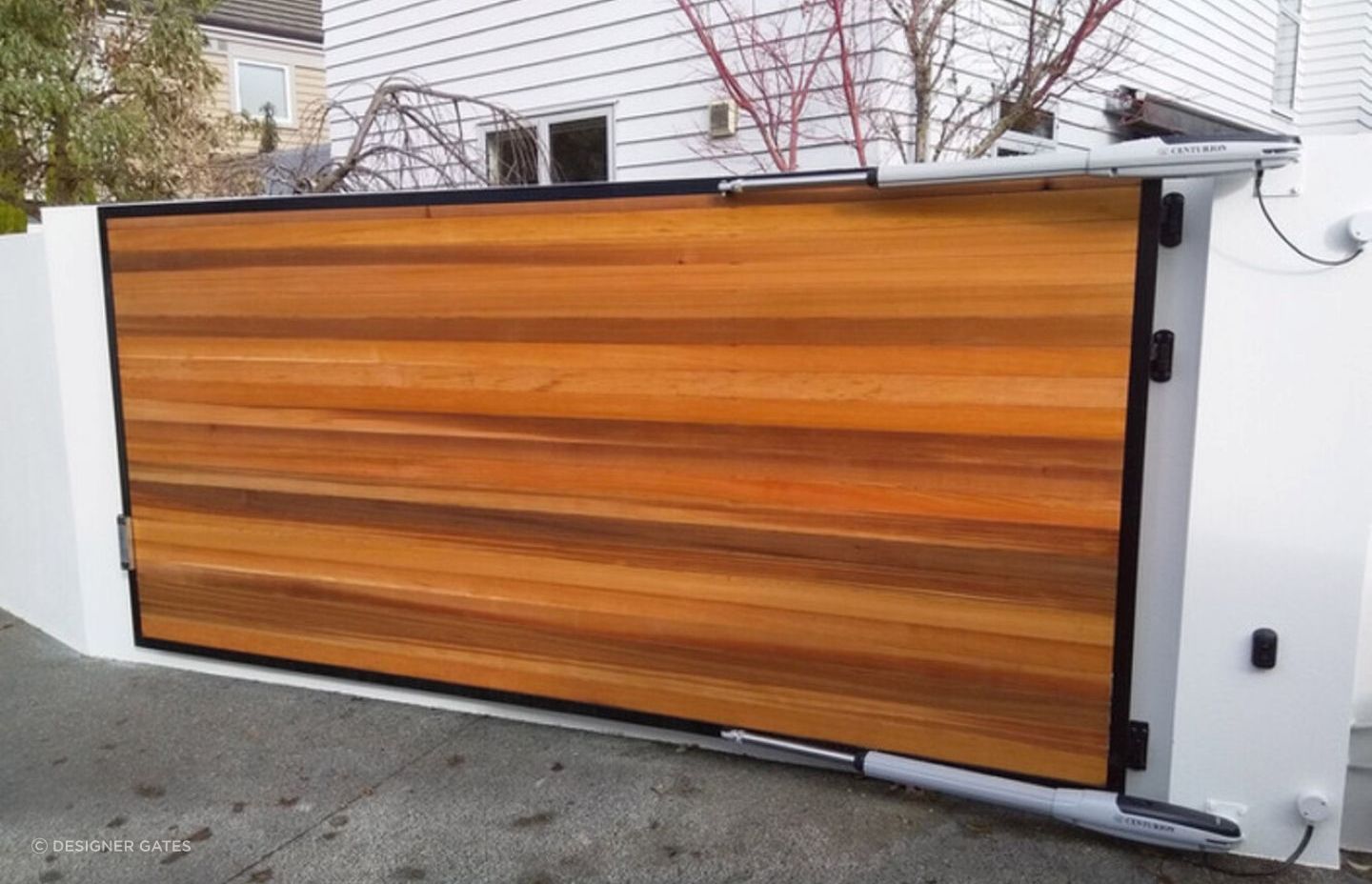
Options for gate materials
As well as the different types to consider, you'll also have to make a decision about the different materials available. Each has its own traits and qualities, some of which might suit you better than others.
Aluminium gates
Aluminium gates are durable and versatile, with rust-proof and maintenance-free properties. Also, aluminium is the most affordable choice of metal used for driveway gates. Colour and powder-coating further increase its durability, making it an ideal option for residential properties where aesthetics is as important as privacy.
Steel gates
Steel is heavier and more durable than aluminium, and also more resistant to break-ins. It is often more expensive than aluminium but this is usually worth the investment if security is paramount. Steel is naturally prone to rust, so you'll want to look for a gate that is galvanised or treated for a rust-proof finish.
Wooden gates
A wooden gate is a common choice that can be operated manually or automatically. They have been used for centuries and continue to remain popular due to their versatile and warm aesthetics. Wooden gates come in many different styles too as a material that is easy to work with. Wood gates, however, do require more regular maintenance than metallic options with respect to staining, painting and treatments.
Wrought iron gates
A wrought iron driveway gate is less commonly seen in New Zealand but is still a type that appeals to some. They are incredibly heavy-duty and robust giving you decades of use. They also have their own distinct style, usually fabricated in decorative and ornate ways that provide a very elegant and sophisticated aesthetic. However, they are prone to corrosion so regular painting or treatment is required.
Related article: 12 types of fences for New Zealand homes
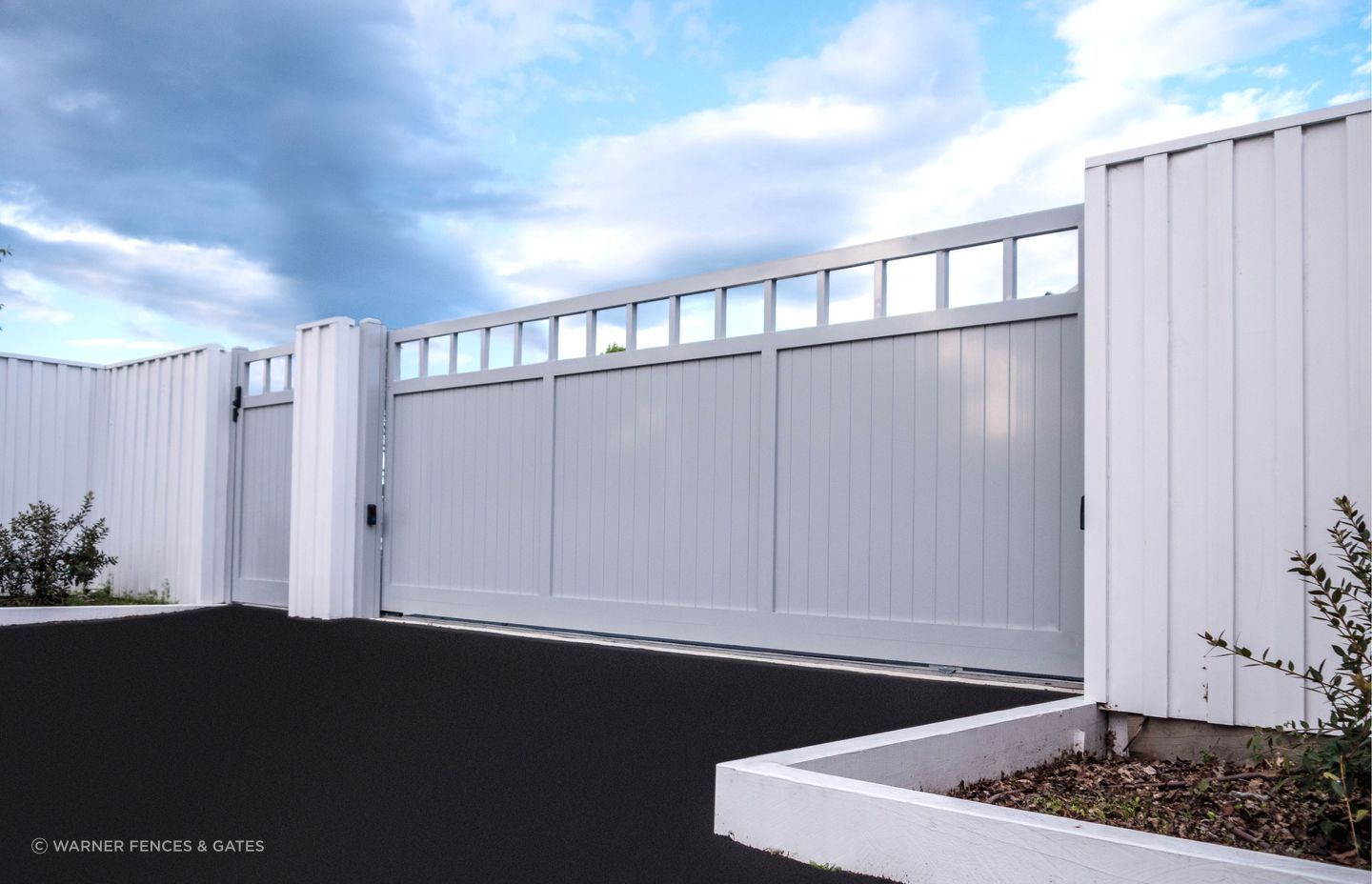
How much does a driveway gate cost?
Different driveway gates will have different costs and with a lot of options and customisation available, the price range can be vast. However, there are some ballpark figures for some of the most common types to give you at least some idea of driveway gate costs.
The cost to install a sliding gate
On average, the installation price for a simple sliding gate ranges from $500 to $3,000 for rear-pipe and V-track models, while cantilever sliding gates start at $1,000 and go up to $4,000.
The cost to install a swing gate
On average, the installation price for a simple swing gate is around $2,000. A single swing gate itself can cost anywhere between $500 and $3,000, while a double-swinging gate ranges from $1,000 to $4,000. Installation of uphill swinging and lift-and-swing gates start at $2,000 reaching $4,000 and $6,000, respectively.
The cost to install an automatic gate
Automatic gates are harder to estimate as they come in a broad range of materials, styles, and operating methods and every detail makes an impact on the final cost of the project. On average, the standard price range to install an automatic electric gate can range from $3,000 to $12,000. Most homeowners pay around $7,000 for an installed sliding driveway gate that comes equipped with an intercom, keypad and motor.
Related article: The cost of fencing in New Zealand: types, materials and more
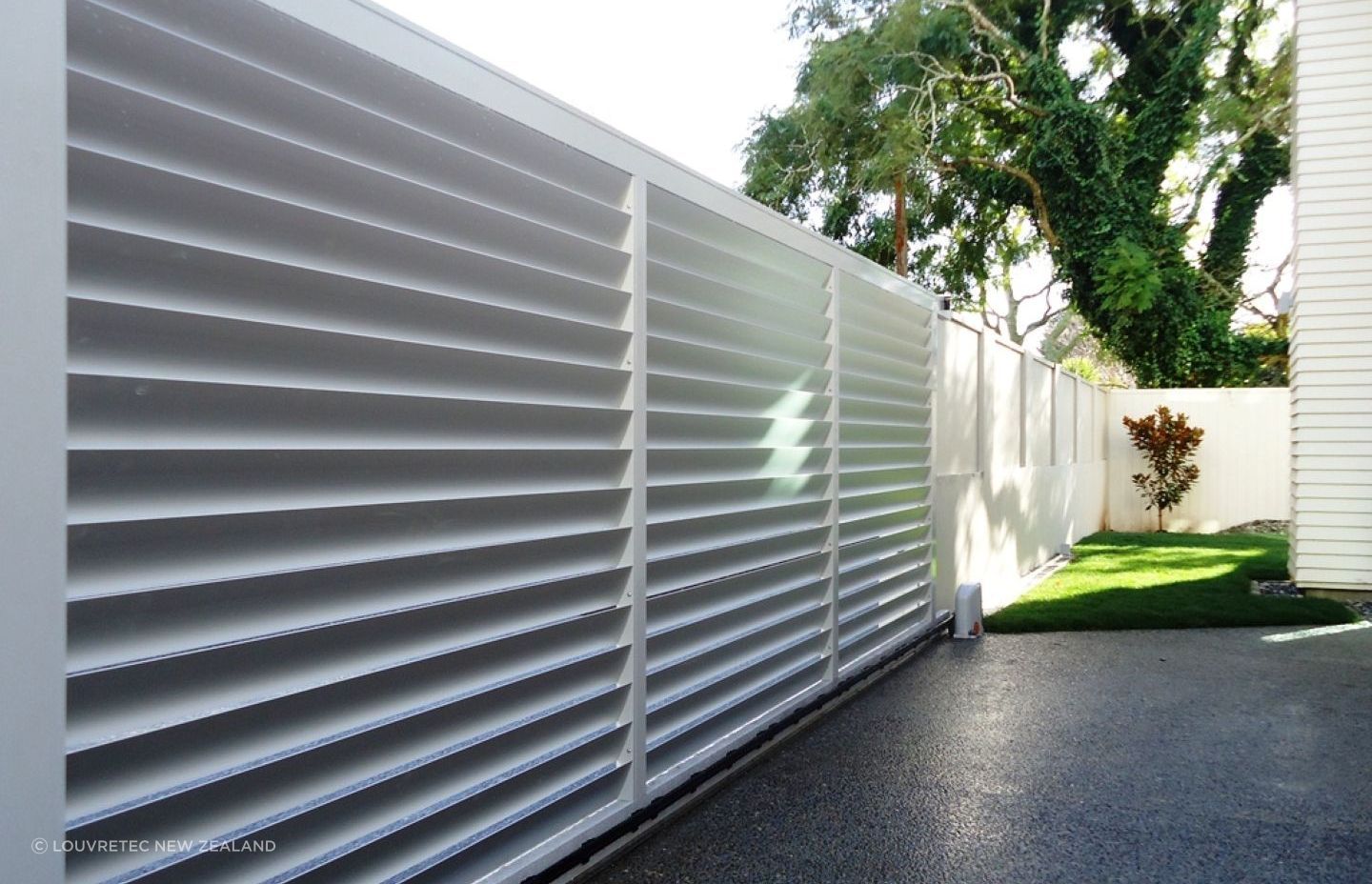
Choosing the right driveway gate for your home
Now you know about the types, materials, costs and qualities that a driveway gate can bring, you can prioritise which mix of these you'd like to have in the next driveway gate for your home. Whether it's a traditional wooden gate or a high-tech automatic driveway gate, you'll be able to find something that meets all your needs and serves you well for years to come.
Discover an extensive range of high-quality driveway gates on ArchiPro
